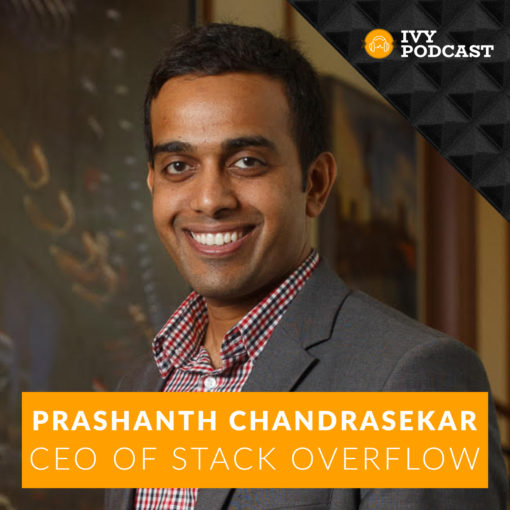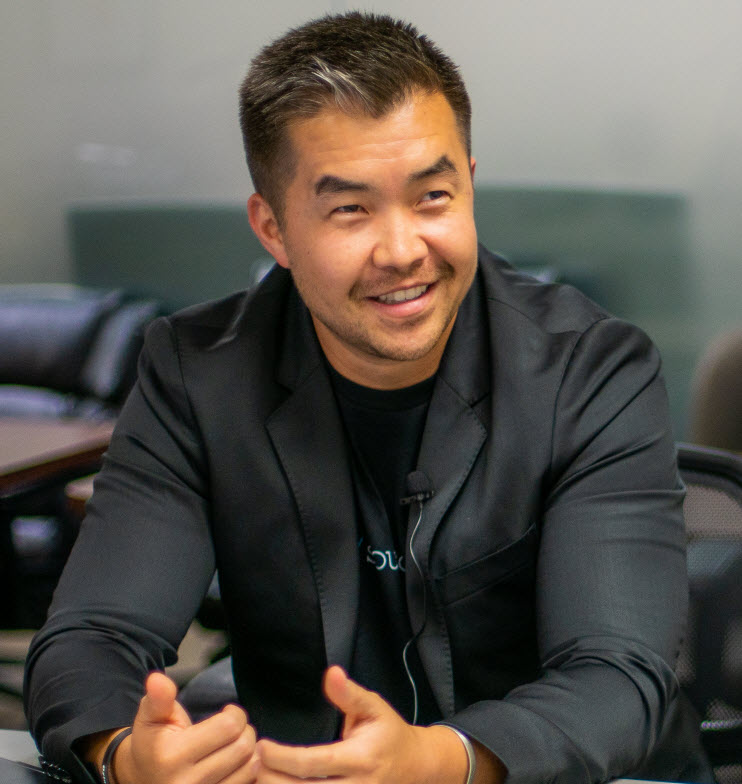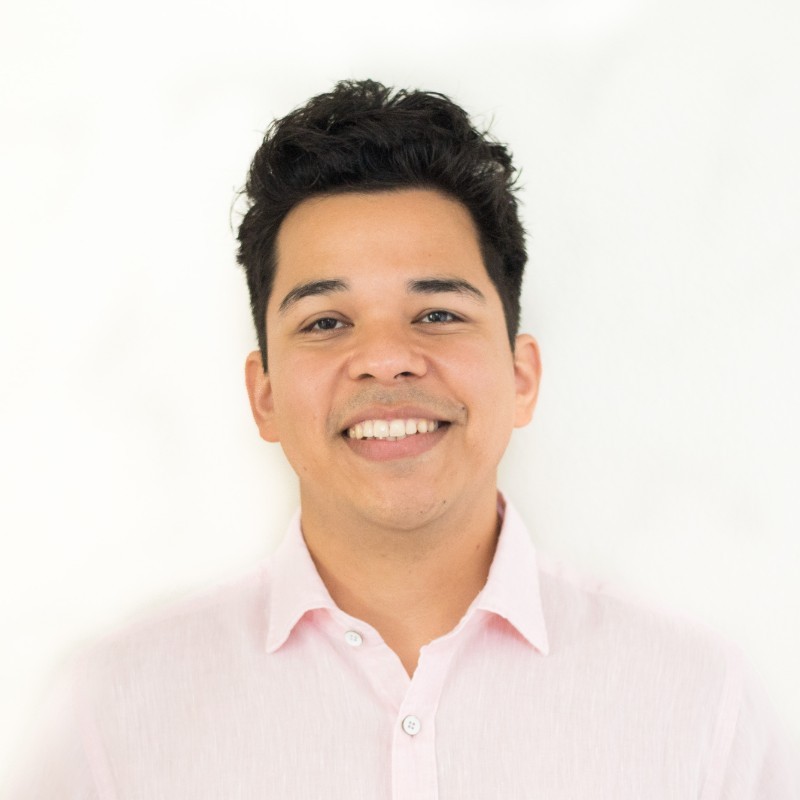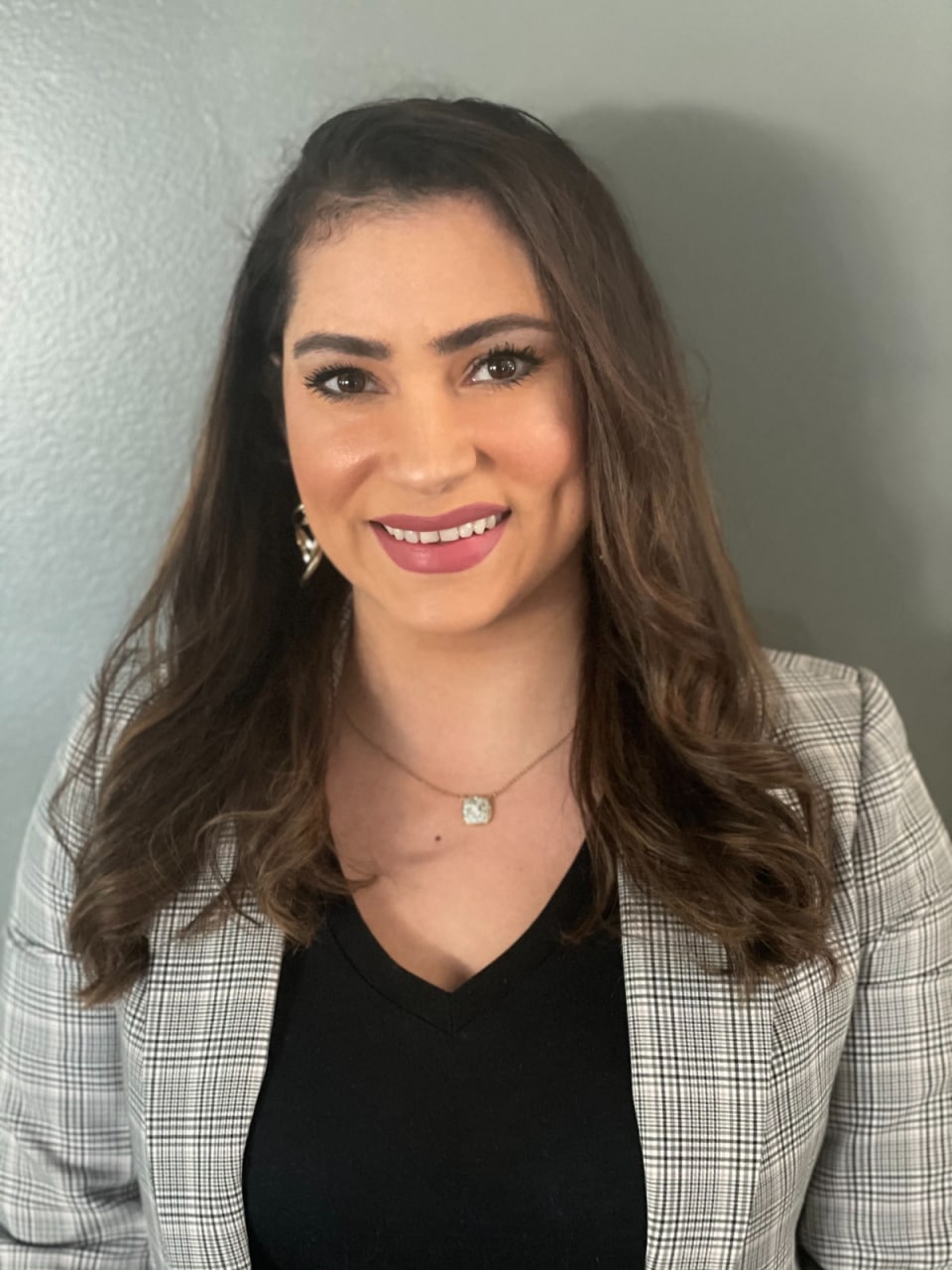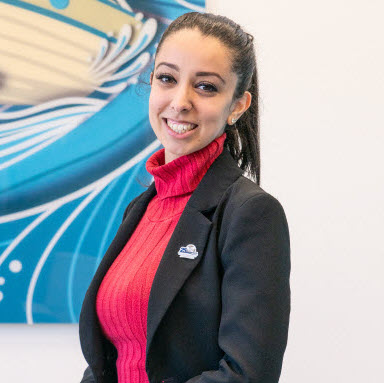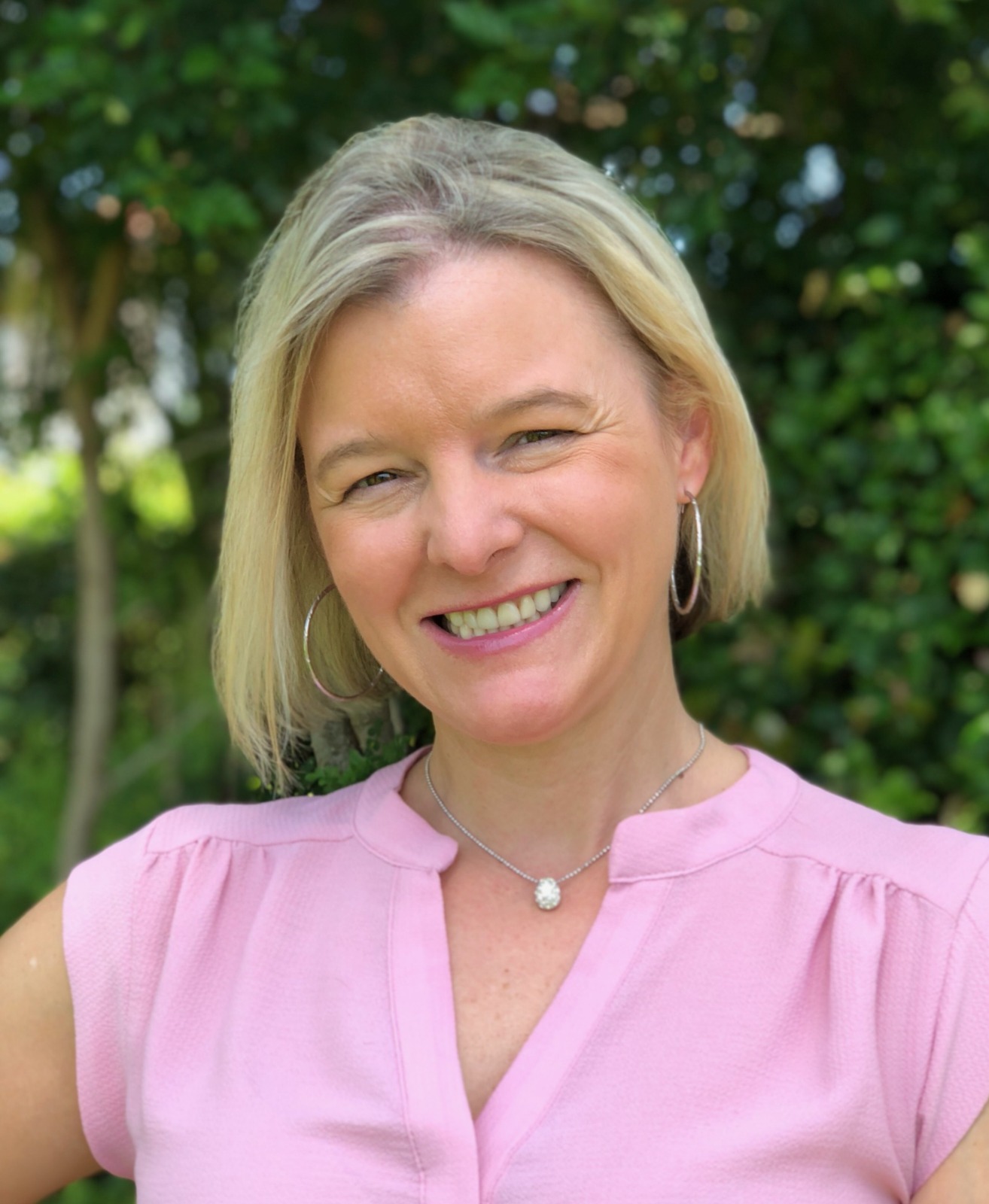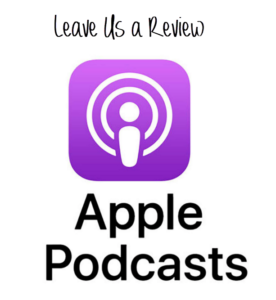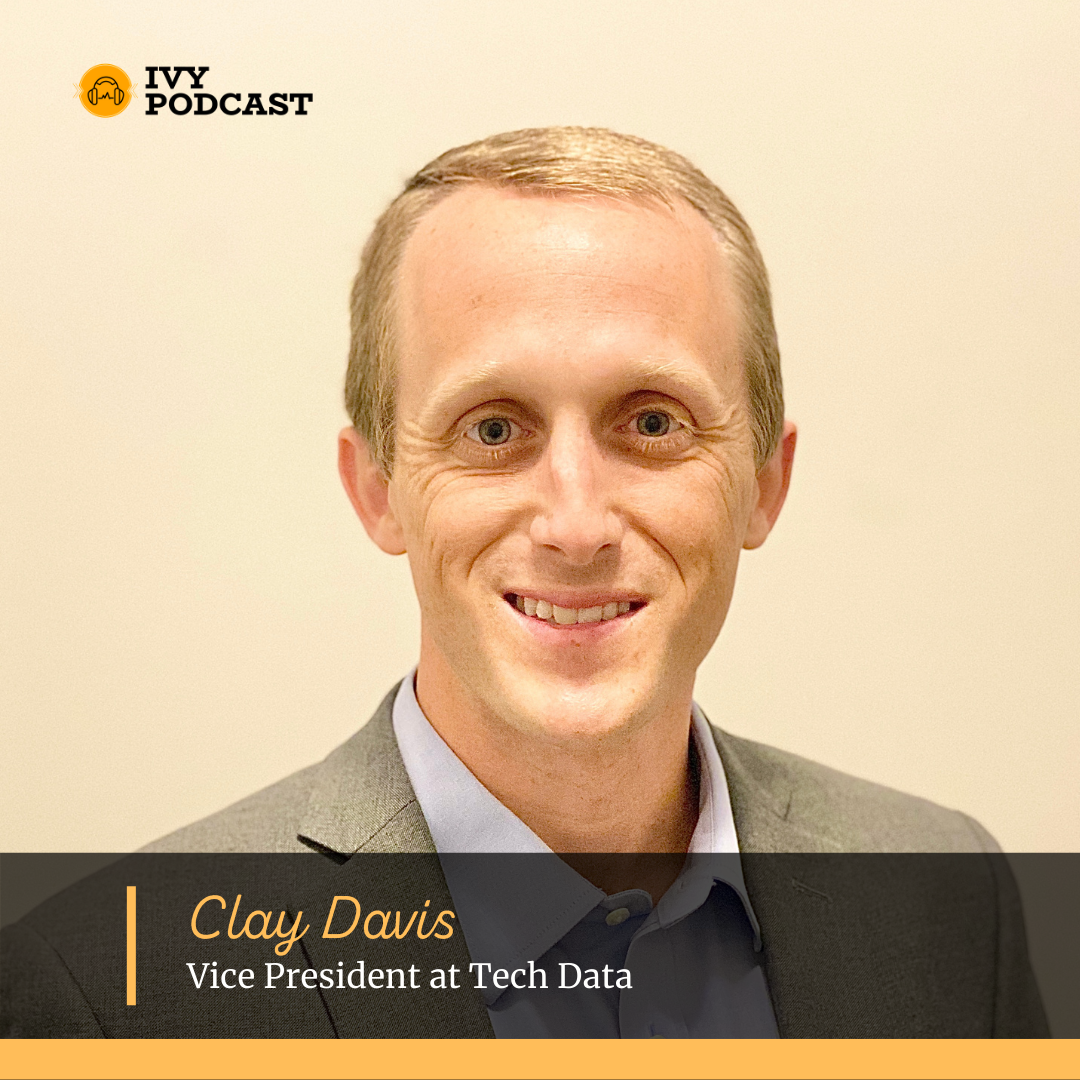
Clay Davis is a Vice President at Tech Data, a technology distributor based in Clearwater, Florida. His responsibilities include leading Tech Data’s Artificial Intelligence, Analytics, and Internet of Things practice. Clay has a global scope, spanning North America, Europe and Asia.
Clay works across the Data, AI and IoT landscape, partnering with Microsoft, IBM, AWS, Cisco, Cloudera, among many others. He combines his servant leadership style with his embrace failure mentality to lead the organization into the next generation of technology.
Prior to Tech Data, Clay spent 8 years at IBM, where he held numerous leadership and sales positions in their Data & AI practice. His last role held him responsible for helping lead IBM into the hybrid cloud market at the time of IBM’s Red Hat acquisition in 2019.
Clay resides in Raleigh, NC with his family. He has a love of playing sports including, but not limited to golf, basketball, flag football, and most recently, pickleball.
His other hobbies and interests include reading, watching the Tar Heels, personal finance, connecting with friends and spending quality time with family.
Episode transcription:
C: I am Clay Davis. I'm the global Vice President of data and IOT at TechData. J: Thanks so much for joining us on the Ivy Podcast. I know it's the holiday season and you took some time to talk to us today, lend your expertise. Much appreciate it. Tell us a little bit more about your backgrounds, where you come from in your career path, and then we'll spend a little bit of time talking about your current role. C: Yeah, sure. Happy to do it, Jahn, and really, really happy to be here. I appreciate you inviting me on the pod. I guess I'll start from a college standpoint. So I live in Raleigh, North Carolina. I went to school in Chapel Hill, graduated from the business school at Chapel Hill and a lifelong target. My first job was selling medical equipment. So I was in a very small company, basically reporting to the CEO, going door to door, to anything to national hospitals, down to, you know, vets and chiropractors. You are in your sales jobs doing that. There's no doubt about it. So after about a year of doing that, I had an opportunity to join IBM. As a seller, I was able to go through a training program there, they call it a summit program. And, you know, Jahn, that was one of the best experiences I've ever had because there's not many companies in the world that will invest six to nine months into you just to train you right and learn the skills so you can be successful at a big company like IBM. I exited that program and kind of went through a sales journey, sales career path within IBM for eight years, where, you know, I started as a seller and I jumped around from accounts and different types of technology, but it was all within analytics, AI, you know, that realm, within technology, but I basically from day one, I think this is just ingrained in me in a way I was brought up. I always wanted to get into leadership. And, so I'm a huge on mentorship, leadership and coaching. And so it just felt like it was something that was going to be natural to me. And so I really wanted to get into that. So I got into that within IBM and was lucky enough to land some management spots, and learned a ton there. I loved the teams that I had over the course of my career at IBM. And about a year ago, I got approached to move to a company called TechData where they needed someone to lead their data, IOT analytics, no kind of organization globally, someone that never been in that role before to work with the vendors and the business partners in that world. And, you know, ended up being a great fit for me personally, and my growth and what I wanted to do. And so that's where I am today. And I lead a team of about a hundred people globally, where all we concentrate on every day is kind of bringing data in IOT to customers across the globe. And it's a really exciting thing. And for those that don't know, TechData based in Clearwater, Florida, and you know, we're a global distributor of anything from mouse pads to AI and IOT and everywhere in between. J: Wow. That's super exciting. And something that you mentioned at the beginning, you know, going door to door and doing all the kind of the cold calling and the sales, you really get that real life experience and where you have to get creative, where the perseverance and a lot of the basic skills that you foster as a professional. I think that's a great opportunity to learn from that experience and grow from there. So that sounds pretty exciting. I've gone through a similar path, from your current role perspective. Can you expand a little bit more on what really falls under your purview When we talk about the data, the analytics, and how does, how does that help your organization solve the problems for your customers C: Sure. It's a great question. We're in the channel, right So the channel is distribution, it's business partners. It's helping both vendors and business partners scale right to as many customers as possible. Right. That's our whole goal is getting technology like AI, like IOT, like databases and BI into the hands of in-customers as efficiently and effectively as possible. So we work with vendors like Cisco IBM, AWS, Microsoft and many others across the globe, big and small, to try and get their solutions into the hands of as many business partners and as many end users as possible. This is why I love my job, because when we have great people, but two, we have just really cool technology that can we can try to get into the hands of as many end users as possible. J: No, that's great. I have quite a few questions for you from that standpoint when it comes to, you know, the IOT and, you know, the data and the letters, because from our perspective at Prosource, especially the past couple of years, some of the most challenging skillsets to find and, you know, to recruit for are in that space, is the data architect. The people who really understand data in the sense that how to use that to, you know, some actionable strategies that are in place that allow not only the executives, but at every level of the organization, to use the data, to make certain decisions. So that's pretty exciting. And something you've mentioned as well, having really cool technologies, which leads me to another point, Innovation. I'm pretty sure is at the core of, you know, as a culture for your organization, that to build and foster a culture of innovation, that is one of the most strategic and top priority initiatives. From your standpoint, as a leader, what's strategies or initiatives that really have helped you in the past, or even in your current job to really build and motivate and foster such a culture of innovation Just if you have any examples of that, that you can share with us, that would be glad to hear that. C: Yeah, sure. Jahn, innovation is so important and the way I look at it is that innovation is taking action really quickly. It's not waiting. It's taking action really quickly. It's learning from inevitable failure. You're always going to fail, right. Especially if you're trying something new, and then taking action quickly again. Right. So it's taking action, failing, taking action quickly again, and just putting that on repeat. And so I think that innovation is that repeat cycle. That's really hard to do. It's easy to say. It's really hard to do because you have to develop a culture that is ready for that. You have to develop a culture that's willing to go try something fast and be okay with it, not succeeding every time. Right. And that can be a really hard culture to define, but some of the best companies in the world, the ones that are innovating the fastest are the ones that do that. Day in and day out, and a culture around that. So there's a number of ways to go about that. Right I think that autonomy is a really big driver of innovation, right Those that feel like they have the ability to go do the things that they want to do, not being told what to do. I think flattening the organization is really key, right Not having this big hierarchical structure red tape, right. That's going to slow down innovation. Just again, driving that culture, that failure is almost desired, right in the speed and acting is really, really needed. One thing that I kind of had known about, but I didn't know the word for it or what it was called, but at TechData, what we preach is servant leadership. And servant leadership is basically flipping the org chart upside down. Right Like the customer is the most important asset to the business, right No doubt about it. Right Without customers, your business is nothing. And so look at who within your organization touches the customer most, right It's the customer support staff. It's the sales staff, right It's all these folks that are touching the customers day in and day out. And they're the ones that should be at the top of the chain. Right. And everyone should serve their needs, right. Not their once, but their needs, everyone should serve their needs. So everyone should be working for them. And so servant leadership is kind of the act of a leader. I need to remove barriers for those people and for the people that serve those people. And so we need to do everything we can to serve the needs of those who are closest to the customer and everything will work out and that'll drive innovation. J: Oh, that's great. And I love those examples from a standpoint of, you know, really creating this environment where everyone feels empowered in a sense that not only bringing ideas to the table, but also knowing that the idea is actually going to be taken, you know, seriously, it's going to be considered even though if it's up to you to make sure that their idea actually brings value. It does make an impact whether on the ROI or, you know, the revenue or the customer. And like you said, from the leadership standpoint, really walking the walk, not only just saying things for, for the sake of saying, but that servant leadership concept, you know, It's pretty unique. And a lot of companies say those things, but rarely you see the actual actions and strategies in place to allow for that, which is great. Great to hear from examples that you're giving. And also when I think of innovation, it also makes me think a lot about experimentation. It's when you give the employees an opportunity to experiment and to really make sure that the particular idea or a product or a feature actually does work actually, and treating these lessons learned not necessarily as a failure, but also as an opportunity to learn and how to tweak. And I think as a culture, when you treat it that way, that, hey, not necessarily we failed, but we actually discovered something better that allows us to bring a better product. I think that's really cool. So definitely thanks for sharing those ideas. When we talk about, you know, IOT, advanced technologies, artificial intelligence, and so forth, you know, they're transforming and have been transforming information technology as a whole in general, as an industry, even. How do you think these trends will impact your industry from an innovation standpoint And more importantly, I'm curious to hear from you know, as an executive, what are the recommendations that you have for implementing such technologies at your organization, because we hear digital transformation, all these, you know, big buzzwords, but when it comes to the actual leveraging and utilizing, implementing such technologies, there's a completely different story. I just want to hear your perspective on that. C: Yeah, yeah, absolutely. I mean, look, with any new technology, right, they all become commonplace and it almost happens before our eyes. I mean, think about computers. They've become extremely normal, right A computer in your pocket, right Your phone has become very normal, right The cloud became normal over the last couple of years. I see no difference with IOT, with AI, with some of these advanced technologies. They're going to become normal right there, we're mid-process of them becoming normal or standard. And so I think it's those companies and people, right. That invest in knowledge and kind of the know-how right now that are going to have that distinct advantage as these things normalize. Right. And they become just more standardized across the industry. If you think about a strategy, right, how do you adapt to these techno adopt technologies It's you just have to start, it goes back to you just got to act to get a try. You got to start because you have to remember that. No one was fully qualified when they started anything. So if you're not feeling fully qualified, I mean, congratulations, you're with 100% of your peers. So AI and IOT, they're right there. I get it. There, they are small acronyms. That sound big and they sound scary and they can sound techie if you don't know it or you don't know it super well. Or you want me to read a couple articles about it, right. But there are no more effective ways than today to drive business outcomes, to increase revenue, to decrease costs so right. Or improve customer service. So this gets back to innovation. We just got to start right. Open the dialogue, try something, fail, learn, repeat, right, do that over and over. And you're going to adopt this awesome technology and put it to great use and, you know, drive awesome business outcomes for your organization. J: Right, right. Absolutely. No, I love the simplicity aspect of that. That it doesn't have to be, as you said, something that's super complicated. Sounds super scary. I mean, it can be treated as, as a simple opportunity to improve certain processes, certain, you know, aspects of your business. So that makes perfect sense. Just want to shift gears a little bit too, to talk about the different trends and ideas that you're super passionate about. It doesn't necessarily have to be in your industry or within your organization. Just what is Clay super excited about What are you researching What do you think will be the next big thing I love, you know, to hear your perspective from that standpoint, whether you're looking to invest in that or implement it to just share with us some of the trends and ideas that excite you. C: Sure. Sure. I'll start with, you know, the AI and IOT stuff that excites me. I think this stuff is really, really cool with 5G coming out and just this stuff is becoming more and more mainstream. Right. I think it's more, these are, these are coming more than just buzzwords, right It's like, how do they become more than just for the nerds Right Like how do we make it mainstream and accessible and put this awesome, amazing technology in the hand, you know, a business person that can make a really, really big impact. So I think that those are really cool. And then kind of outside of our discussion here, cryptocurrency is something that I'm super interested in, right I mean, Bitcoin is basically at an all time high right now. Right. I think it hit 28K yesterday. And I think it dropped another thousand, but it's a little volatile at the moment. I think cryptocurrency blockchain, right All of that type of technology I think is really cool. I mean, when I think of crypto, I think of currency is a figment of our collective imagination. That's what currency is, right It's it's a piece of paper or a coin. And it has value because we all believe it has value. So I think why can't crypto Why can't that have collective value, right. Amongst all of us, right. There's less and less doubters every day on what cryptocurrency can bring. So, you know, we could probably go on and on about cryptocurrency, but I think that's super, super interesting. And then, you know, kind of on a personal level, right The building out of passive income streams, I think that's a super interesting, you know, thing that I've been diving into right. Speaking to a lot of people about and trying to better understand how do you optimize those things from a passive income standpoint Uh, so I would say those are probably the things that interests me the most at the moment. J: Oh, that's super cool. I love, I love that. And you know, actually the funny story to add to that every other Friday, we have this very casual Friday night, a zoom call with a bunch of people, a bunch of friends, and that's all we talk about. We talk about the different ideas, different trends, and you know, the passive income opportunities. And it's super exciting. It's just something that I enjoy on the side. So from just to dig a little bit further from the passive income perspective, can you share with us anything that's interesting to you that, you know, has a good potential of building a passive income as a side hustle or something that people can explore further Is that something that you can share C: Yeah, absolutely. Look, there're so many ways to develop passive income streams. I mean, it's unbelievable. The more you even get into it, the more you realize how many opportunities there are. Right. A lot of my focus is in real estate that just happens to be what I kind of started to jump into and that's what I've done right from. I've some single family homes and some commercial real estate properties. Some would just my family. And then I have a business partner that I do a lot of great work with. As you probably know, right, picking the right business partner is a really important thing. Right. You're sharing risk, you're sharing reward, but you gotta be along with, along the ride with someone that has a really high integrity. Right. And that you share the same values and you share the same why are you in this And I think that's really important. So I would say real estate, but for some real estate may seem, you know, it may seem like too much. You can build an audience on Twitter, you can go build an audience on LinkedIn and you can monetize that, right. You can go, right, write a hell to book about something that you are very passionate about. Everyone has something that they can do. And I also believe that everyone has something, everyone underestimates something about themselves, right They think something is really easy to themselves. So my advice would be, find something that seems really easy to you. Right. And that you really enjoy and go write about it or go teach it to someone. Right. You can. And if you want to, you can go monetize that. Right. I mean, passive income can mean so many things to so many people, but it's just a really exciting thing to think about, right. It changes your concept of time and money from a nine to five to how can I do both, right How can I start to do a lot of these different things Because, you know, time is our most precious asset. And if you can build up passive income streams, you've then freed up time to go do the things that you want to do and learn about the things you want to learn about. J: Right. I love that. I love those examples. Thanks for sharing that, you know, real estate, very similar, very much into that, you know, investment wise, flipping and all of that great stuff. Super cool. And, but also something that you are talking about, you know, taking your expertise, your area of expertise, something that you enjoy and try to monetize that. I think that's oftentimes overlooked, right Because it seems, you know, like a huge undertaking. But there's so many tools out there that will allow you to do that. You know, I have a really good friend who was very successful as an executive fortune 500. And then he started blogging and started writing about, you know, his area of expertise. And now he even quit his main full-time job as an executive. And now just does this. Full-time running his paid newsletters. Through sub stack, he just has a huge followership and just people pay for that premium content that he puts out. So that's just one of the examples of, and people will pay. C: People will pay for a lot of stuff out there. Right. And again, I just implore anyone listening. Right Find that thing that you love, find the thing that comes easy to you because it probably doesn't come easy to a lot of other people. Right. And you find that you can be off and running, but the big thing is you just got to start. Yeah. You never know where it will go, right J: Absolutely. I love that. I love that quote, in terms of you get a start because you know, talk is cheap. You can talk all you want about it, but you're not going to see anything until you actually start doing something. So that's great. I love that. Shift gears a little bit. I want to talk about some of the strategies that you deploy, you implement to surround yourself. With the top people as an executive, I'm pretty sure that's at the top of your minds, whether you actively recruiting or inactively, you always on the hunt for A-players, you're always evaluating people who, you know, I would love that type of person to be on my team. First things first, give us a glimpse into an interview with Clay. What does that look like Do you get creative with it Do you keep it pretty standard and traditional, but more importantly, what do you look for in some of the responses when you interview a candidate C: You know, Jahn, that's a really good question. No one's ever asked me that before. I should re-interview the people I've interviewed, and see what they would say because of course I'm going to be biased about what I think I do. I'm okay with nervousness at the beginning. Right I think a lot of people, if you're nervous, it means something to you. I think that's really good. So I actually don't mind nervousness. I think that's really good, right Confidence is great too. But the nervousness is probably better than people think, from an interview standpoint and then, I'm always impressed when someone's asking really profound questions, right Like I want to see genuine curiosity when we're talking and I don't want to see, you know, that you're just saying the things that you wrote down before the interview. I want to see that you're, you are actively listening, actively engaged, because if you can do that with me in an interview, that means you can do it with a customer or you can do it with another colleague. Right. And if you actively listen, that's how you really drive new things. New ideas. Drive relationships, drive sales, whatever the thing is that you're going to do. I think that active listening and that like innate, genuine curiosity is a wonderful trait in anyone. So I definitely look for that.mAnd then you'll probably laugh at this. I mean, I mentioned I had a sales background. I want someone to trial close me at the end. Right. I don't want to just leave it where they leave it open-ended right. Because I want them to trial close me. Right. Like ask me, you know, what would prevent you from moving me forward in the process Or do you have any hesitations with me working in this role Right. I want that because if I get that, I'm always impressed when someone gets it and it's amazing not many people do it. So it really stands out when someone does that. And then, you know, post-interview obviously I want to see a follow-up because again, if you're following up with me, it's a habit you're going to follow up with your customers or, you know, other people when it gets a good, a good thing. But specifically within that followup, if you ask for feedback, I think that's a really good thing, right If you are seeking feedback on how you did right. That means that you have curiosity, that means you have a desire to be better, right. And a desire to learn. And a lot of those things are really hard to teach. J: Well, I love those examples because part of, you know, the kind of the centerpiece of the company now with Prosource, it is, you know, partnering with companies and helping them find very niche talent. We're focused on it. We focus on data engineers. We talk about site reliability engineers, right Those guys, very unique unicorns, but a lot of times, you know, as we prepare them for the interviews and we prepare them for the actual conversation with the hiring managers, a lot of those points, you know, we stress that, but you'd be amazed at, how rarely that does come up from a candidate perspective to really ask for feedback and try to like what you said. I think it's pretty genius in terms of being able to get to some type of not even a direct response, but some type of action at the end of the interview, in terms of how do you know, what was your feedback What are the next steps and so forth. So that's pretty cool. And, you know, from a standpoint of just that follow-up, after that conversation, tying that back to how people would normally operate is as a follow-up with the customer or whoever else they're dealing with. I think that's super important. You don't see that often, it seems so basic, but oftentimes overlooked. C: Oh, it is. And you know, another thing that I really liked as well as the precursor to the interview, like, you've got 30 minutes into it with me, maybe 45 minutes. Right. There's a lot to consume there. So I think the smartest people will send something pre-interview and I've actually seen people send a video to me, right. To say, this is who I am. Right. This is what I'm about. And so that I can see that prior to the interview. Right. Get a sense of who this person is versus what they just are on paper. Right Maybe it's a video. Maybe they send me a two paragraph intro to who they are. Right. And that helps jumpstart the interview. And it gets us to we can have more substance substance within the interview time because I got to know them a little bit. And again, it also ties back to. If they're going to do that with an interview, they're going to do that with their most important clients, right prior to a meeting, they're going to be very organized. They're going to have a precursor to the, to the meeting. So I just think it's another thing that popped in my brain that I think would be a powerful tool from an interview. I love it. I'm actually typing up a note about that, you know, it's. So putting some type of introduction that by yourself, I think that's pretty genius in terms of giving the interviewer the context about yourself and letting them pair as well. And you completely differentiate yourself by doing it. J: Exactly. Exactly. Cause you know, the interview is such a short window of opportunity to get the message across. And a lot of times it's all based on these like small cues. So if you do that kind of homework that, you know, prior to the actual interview, I think that's pretty cool. So thanks for that advice. I'm definitely going to steal that from you and with a lot of our candidates, цhen it comes to actual strategies to attract the top talent, to join your organization during your team. What has worked well for you in the past Or maybe what has not, where have you failed and what have you learned Just curious to hear about some strategies that like, you know, you did that and that, you know, led to this type of person joining your team and you're like, oh wow, this was so cool. And I'm going to try to do that again. C: Yeah. I mean, look, it's all about culture. I mean, and that's such a broad term, but people desire direction. Right. But more importantly, they desire to feel important. Right That's that's like every single person has a desire to feel important, so by respecting people's time, genuinely appreciating their work, we kind of preach servant leadership at TechData and it comes from the top down. And I think that's a great way to attract and retain talent, right. I also believe that if you know, I've read that if you can't see yourself working for someone for life, you shouldn't work for them for a day, you know And that just gets to culture, right So like, if we have a team that has a bunch of people that people think that they can work for life, right. You've got a great setup. You've developed an awesome culture, right We're doing something right. But building a culture is really, really hard. You know, it takes a lot of time and it takes a lot of consistency, but it's really fun when you have an environment that, you know, allows for failure, allows for creativity. There's an openness, right. And an ability to feel and be important and be appreciated that I think people, it doesn't have to be hard. Right. Appreciate what people do. Right. Praise really specifically, right When you, when you're giving praise or positive feedback, be really specific. I'll point to an example for me, right. When I was thinking about coming to TechData, I loved my time at IBM. I was provided tons of a great opportunity and I had no desire to leave. But as I went through my interview process with TechData, right, they were talking about servant leadership. They were talking about diversity and inclusion. They were talking about all these things that they truly believed in. Right. And I was lucky enough to interview with the top executives within the company, from the CEO down. And all of them said it. You know, Jahn, when you're in a discussion with someone, you can tell if someone's being genuine. Right. And I felt that genuineness coming from the CEO coming from the other C-level, you know, folks within the organization talking about servant leadership and how important that was to the culture. And, you know, my thought was, if I'm going to walk into this right one, I know I have to buy into servant leadership, which 100% I didn't even realize what the word was before I came in. And before I started talking about it, but I'm like, if this is coming from the top down, it has the best chance to succeed. Right. If people are truly caring about this. So I think that building that culture and getting buy-in from the top down is huge. But, yeah, I think there's a number of ways to do it, but that's how I go about it. No, that's, you know, it makes sense. That's there is no right or wrong around this, but when you boil this down to the type of leadership, the type of environment, that type of culture, and what are you going to get out of this as a professional and also how you can contribute to that. So the greater mission, I think that sounds cliche, but at the same time, you know, it works and it makes sense. For someone to be able to attract the top talent to join you because, you know, you can throw all the money, the perks and the benefits at people all you want, but it's a short-term benefit. This is a short term fix. It's not something that's sustainable. J: So that's pretty cool. Thanks for sharing that. Curious, what are the different sources of information that you utilize on a daily basis Whether that's a particular blog you've subscribed to a newsletter, or there's a Twitter feed that you follow, share with us the sources of information that Clay uses on a daily basis C: Sure. So you'll probably find if we dive into this a lot that I go pretty broad. I'll get specific in some areas, but, um, yeah. I love all forms of learning, right Podcasts, books, newsletters, Twitter. Um, my favorite product podcast right now is Unmistakable Creative by Srinivas Rao. You know, he interviews super creative and thoughtful people from all over the world, all different backgrounds. And most of those people you've never heard of before. And so I think it's really cool, you know, lots of really cool people doing lots of really cool things. So that would be the highlight there. I do subscribe to a couple of newsletters of James Clear who wrote atomic habits. Rob Thomas, who's an executive at IBM as well. Tim Ferris, right A lot of people are subscribed there. So there's a couple of newsletters that are there. And then I'm on Twitter. There's a lot of followers that I like, but the ones that come to mind, Shane Parrish, Jack Butcher, David Pearl, and then we have books. We had an entire podcast about the books. J: I love that. I love those examples. That we'll list those out for our listeners in the episode notes so that our listeners get referenced to that. Clay, last but not least you've mentioned books. What are you currently reading And if you could think of a book that you always recommend, what is that and why do you recommend it C: What I'm reading right now. So I usually try to only read two at a time. I'm actually reading three. I think it may be the holiday season, and, you know, just have a little bit more time to read, but right now reading The Power of Now by Eckhart Tolle, it's basically about, you know, being present, not thinking about the past, not thinking about the future, but being present in whatever moment you're in right now. It's a unique one I'm reading. The other one is Fact Fullness by Hans Rosling, really, really interesting, but basically the premise is, you know, yes, the world is bad. There's plenty of that in the world, but it's actually better than we think. It's actually way better than we think. And it's improving at a faster rate than we think, right. Despite what we see in the news and other sources. It's a really interesting perspective. I was actually really excited for the holidays. I got the Almanac of Nepal Rabbitcon, It's really, really well done. I mean, I've basically flown through it in two days. Right. It's all of his thoughts on all of the thoughts on wealth and health, and it's really delivered in a really succinct and powerful way by the author Eric Jorgensen. For those that don't know, he started angel lists.com and, um, you know, he's big in the VC community, but he's the only person that I've ever heard of that is really well-read in philosophy and well-versed in technology and business. So it's a really cool combination and he's got some really cool insights. And then let's see you asked what would I recommend to anyone I would probably go with Atomic Habits by James Clear. So the book is basically about, you know, what's the simplest and most effective way to drop habits into form habits. And it applies to literally everyone, right We as humans are the combination of our habits and the people we hang around with most right. That basically makes up who we are and everyone has habits. Everyone has good ones. Everyone has bad ones. Right. The more good ones we have, the better we're going to be in the long-term. So, you know, it doesn't matter who you are, what age you are, where you live, right. Habits play an insanely important role for us and they apply to everyone. So that's why I recommend that one. J: I love it. It's definitely on my list. And, like yourself, I follow James Clear on Twitter and a lot of great tips that he shares from the book. And I'm like, I got to read that, I got to get little tips from him from the tweets. C: Sure, definitely. J: Thanks for those recommendations, Clay. And just in general can thank you enough for all of the lent expertise to us today. I know it was a very short, but very insightful conversation. I personally learned quite a bit. I look forward to staying in touch with you and perhaps we can do another episode in about a year or so, and see how much you have transpired. So thank you so much for that. C: Thanks, Jahn. Looking forward to doing it again. Thanks so much for having me.
Welcome to Ivy Podcast! On this Executive Leadership Podcast we interview top executives from Fortune 500 with a focus on strategy, innovation, negotiation and everything about leadership.
Our Podcast for Executives features Thought Leaders who share practical insights for effective leadership, continuous innovation and strategy execution.
Ivy Podcast is a rapidly growing Executive Podcast, which covers topics like Hiring and Retention Strategies, Talent Acquisition, Innovation, Digital Transformation and much more.
On this Leadership Podcast, you will find conversations with the most accomplished executives from Fortune 100 companies. We aim to cover a broad range of industries and create a learning platform for the most ambitious and high potential professionals who are looking to learn from the most accomplished Executives on this Business Leadership Podcast.






